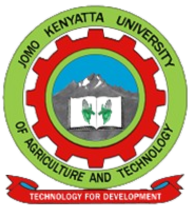The misapplication of antimicrobials in both human medicine and food production poses a serious risk to every nation, especially given the scarcity of new antimicrobial agents in development.
Shedding light on this issue in the context of Kenya, researchers at the Digital Health Applied Research Center (DHARC), domiciled at JKUAT, conducted a comprehensive assessment across 28 facilities in 10 counties. Their goal was to evaluate the diagnostic capacity for Antimicrobial Resistance (AMR), examine antibiotic use, and assess existing antimicrobial stewardship practices.
This endeavor, funded by the Foundation for Innovative New Diagnostics (FIND) and the Global Antibiotic Research and Development Partnership (GARDP), with support from the Ministry of Health, targeted a spectrum of health facilities (private, public, and faith-based) in Nairobi, Kajiado, Kilifi, Kirinyaga, Nyeri, Laikipia, Isiolo, Vihiga, Nandi, and Kericho.
The Principal Investigator, DHARC, Prof. Simon Karanja, emphasized that the study provided invaluable insights into the current AMR diagnostics landscape, identifying both strengths and gaps in capacities, current usage patterns, regulatory necessities, and the community’s readiness to invest in AMR diagnostic services within these selected counties.
“Through this assessment, we gain a strategic edge in preparing for the introduction of cefiderocol and other antibiotics, along with novel low blood culture and molecular point-of-care treatment platforms in Kenya,” explained Prof. Karanja during the dissemination workshop held on December 19, 2023.

A cross-section of the participants following proceedings during the dissemination meeting
Acknowledging the escalating threat of AMR to global public health and its impact on disease prevention and treatment, Dr. Patrick Amoth, Ag. Director General of the Ministry of Health, commended DHARC for their timely and comprehensive report.
“At a juncture where AMR challenges the very foundation of modern medicine and our ability to combat infectious diseases effectively, this report comes as a crucial asset. The data provided by this study equips us to mitigate the risks associated with AMR, benefiting not just the Ministry but the entire nation,” stated Dr. Amoth.
He highlighted the report’s significance in crafting policies aimed at enhancing diagnostic capacities, particularly in level 4 health facilities, as Kenya moves toward universal healthcare for all.
Dr. Amoth underscored the importance of enhancing awareness and understanding of antimicrobial resistance, bolstering the knowledge and evidence base on AMR, and fostering sustainable investments in new medicines, diagnostic tools, vaccines, and other interventions.
The Principal of the College of Health Sciences and a Member of DHARC, Dr. Reuben Thuo, highlighted the role of the assessment in pinpointing shortcomings within the university curriculum.
“As educational institutions, we can now tailor and refine our curriculum to directly confront the gaps unearthed in this study. We aim to integrate and align the study’s findings within our curriculum,” said Dr. Thuo.

Prof. Simon Karanja (left) and Dr. Reuben Thuo interact with the Director General, Dr. Patrick Amoth during the dissemination meeting
The meeting was also addressed by GARDP, Project Lead, AMR Diagnostic and Antibiotic Use, Dr. Lauren Jankelowitz, FIND Project Lead AMR Diagnostic and Antibiotic Use, Dr. Veronica Chuchu and Dr. Emmanuel Tanui from the National Antimicrobial Stewardship Interagency Committee (NASIC) who collectively, emphasized the essentiality of unified, collaborative efforts across all sectors to effectively combat and alleviate the threat of AMR.
In humanizing the looming threat of AMR, Dr. John Kariuki, a member of the WHO Taskforce for AMR Survivors, courageously recounted his personal journey, grappling with AMR following a critical hip reconstructive surgery.
His firsthand account vividly illuminated the challenges and hardships individuals face when confronting the realities of antimicrobial resistance in medical interventions.
The dissemination workshop brought together about 80 Ministry of Health officials, representatives from the 28 public, private and faith-based health facilities, GARDP and FIND officials, DHARC team and health officials from the 10 counties targeted by the assessment.
Led by Prof. Karanja, the assessment was conducted by a cohort of multidisciplinary researchers, featuring Dr. Jane Aduda, Dr. Reuben Thuo, Prof. Fred Wamunyokoli, Prof. Gideon Kikuvi, Mr. Henry Kissinger, Dr. Joseph Matheri, Dr. Susan Mambo, Ms. Esther Gichaiya, Dr. Joseph Machua, Dr. David Kamau, Dr. Susan Mwelu, Mr. Philip Oyier, and Mr. Daniel Otieno.

DHARC gives insights into Antimicrobial Resistance in 10 Kenyan Counties


Leave a Reply